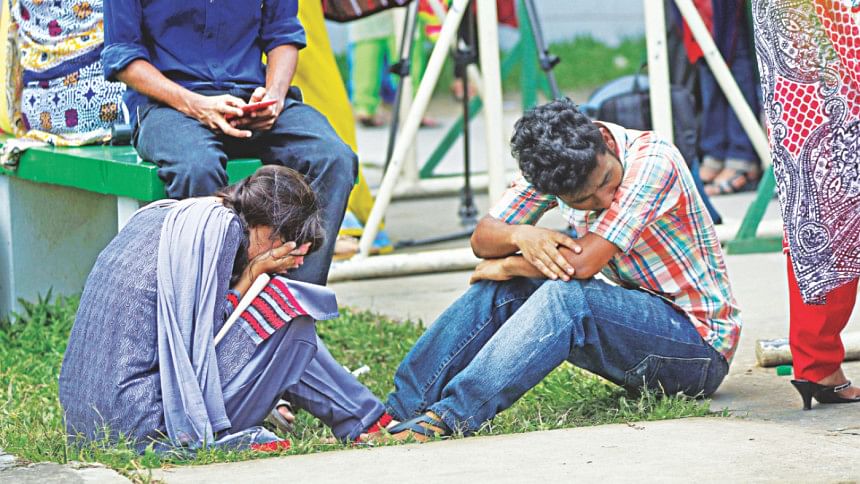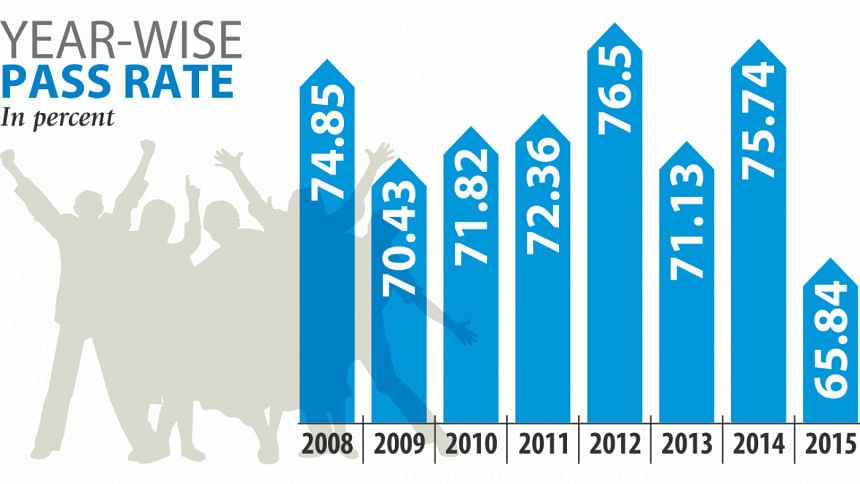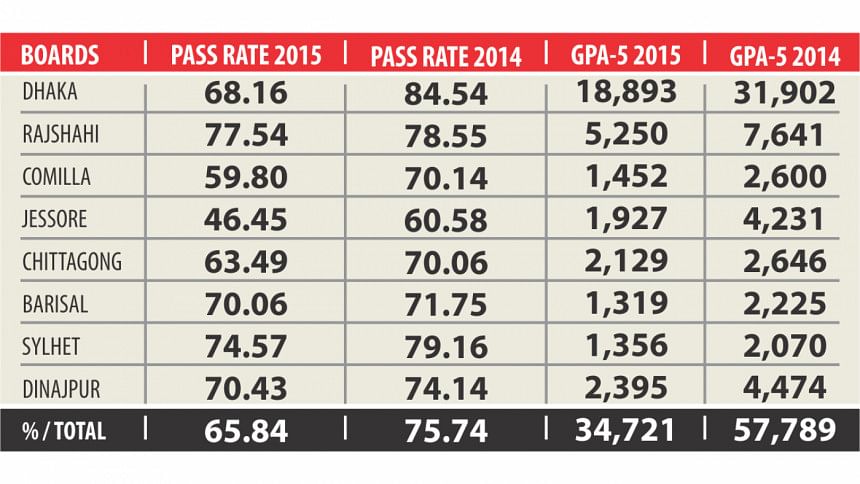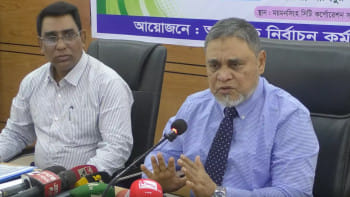HSC pass rate 8-year low

The success rate in this year's HSC examinations has hit an eight-year low mainly due to students' poor performance in English and political unrest.
It fell around 10 percentage points to 65.84 percent from last year's 75.74 percent in all the eight general education boards.
The results of Higher Secondary Certificate exams, published yesterday, show a decline in the number of GPA-5 scorers and also in other indicators.
A total of 34,721 students got GPA-5 (Grade Point Average), compared to last year's 57,789. The number of unsuccessful students and institutions with zero pass rate rose while that of colleges with 100 percent pass rate came down.
Chairmen of the education boards, officials and teachers have cited several reasons behind the students' poor performance this year.
They said the students performed badly in English, which impacted on the overall results.
The pass rate in this subject dropped significantly in six boards. In Dhaka board, the success rate in English slipped to 79.1 percent from last year's 93 percent, show the statistics of eight boards.
Students under Jessore Board performed poorly in the subject as only 50.91 percent of them were successful. Last year, the figure was above 65 percent.
Prof Madhab Chandra Rudro, exam controller of Jessore Board, told The Daily Star, "Most students told us that they found the English question papers extremely difficult to answer."
Abdul Mazid, chairman of the board, echoed Madhab's view. He said poor marks in English had a negative impact on the pass rate of this board.
Many students in the eight boards also performed badly in physics and Bangla. The pass rate in the two subjects fell 4.5 percent and 3.2 percent compared to last year's.
Board officials said the examinees also couldn't do well in the theory part of Information and Communication Technology, which was made a compulsory subject this year for the first time. Most colleges didn't have expert teachers on the subject.
The officials said the introduction of a new method of preparing and choosing question papers this year also contributed to the poor results.
In the last couple of years, all the eight boards prepared four sets of question papers for each subject, and every board chose one set from the four by lottery.
This year, each board drafted four sets of question papers for every subject, but it had to pick one set out of 28 prepared by the other seven boards by lottery, they added.
Talking to The Daily Star, Dhaka Board Chairman Abu Bakkar Siddique said, "In the past, students were able to understand the question patterns, seeing the question papers of previous years. But this time, they got a different question paper."
Seeking anonymity, an official of the same board said the new step was taken to check leak of question papers.
Announcing the results at a press conference, Education Minister Nurul Islam Nahid mentioned the BNP-led alliance's countrywide blockade and frequent shutdowns as one of the main reasons behind this year's poor result.
"The year started amid hartal and blockade. The colleges could not hold regular classes in the unusual situation. Many of those could not provide the students with last moment's lessons," he told reporters at his ministry.
"Students could not make proper preparations as they were uncertain about the exams."

The minister said some qualitative changes were made in the creative question papers, which the students found difficult to answer.
"We will conduct an analysis to find out the other causes," added Nahid.
Yesterday, colleges across the country wore a festive look. Getting the results, many students and parents erupted in jubilation while some others burst into tears.
The results came 59 days after the exams.
Around 10:00am, the education minister handed over a copy of the results to Prime Minister Sheikh Hasina at the Gono Bhaban.
In an exception to a common practice in past years, the government didn't make any list of best colleges, saying it "created an unhealthy competition" among the institutions.
The combined pass rate in 10 education boards, including madrasa and technical boards, also came down to 69.6 percent from last year's 78.33 percent.
As many as 10.61 lakh students from 8,294 institutions took the HSC and equivalent exams that began on April 1. Of them, 7.38 lakh came out successful.
In the 10 boards, 42,894 students got GPA-5 this year, down from 70,602 last year. Only 20 students scored GPA-5 when the grading system was introduced in 2003.
The number of institutions with 100 percent pass rate dropped to 1,133 from 1,147. No students passed from 35 institutions.
In terms of pass rate, girls outshone boys though their number was lower than that of boys. The pass percentage of female students was 70.23 against 69.04 percent of male students.
Boys, however, fared better in securing GPA-5 with 23,293 boys achieving the distinction against 19,601 girls.
Rajshahi Board outperformed others by securing the highest pass rate of 77.54 percent followed by 74.57 percent in Sylhet Board.
Jessore board has the lowest pass rate of 46.45 percent, which is significantly low compared to that of others.
The low pass rate in this board had a bearing on the overall pass rate, said officials.
As usual, students from the science group did better than others with a pass rate of 77.66 percent, followed by students of business studies group with 71.93 percent.
Students of humanities group couldn't match the performance of the science and business students, as they had a pass rate of only 57.99 percent.
As in the previous years, the successful students will have to face stiff competition to get enrolled in public universities this year, as the number of seats in those institutions is much lower than that of the students.


 For all latest news, follow The Daily Star's Google News channel.
For all latest news, follow The Daily Star's Google News channel. 



Comments